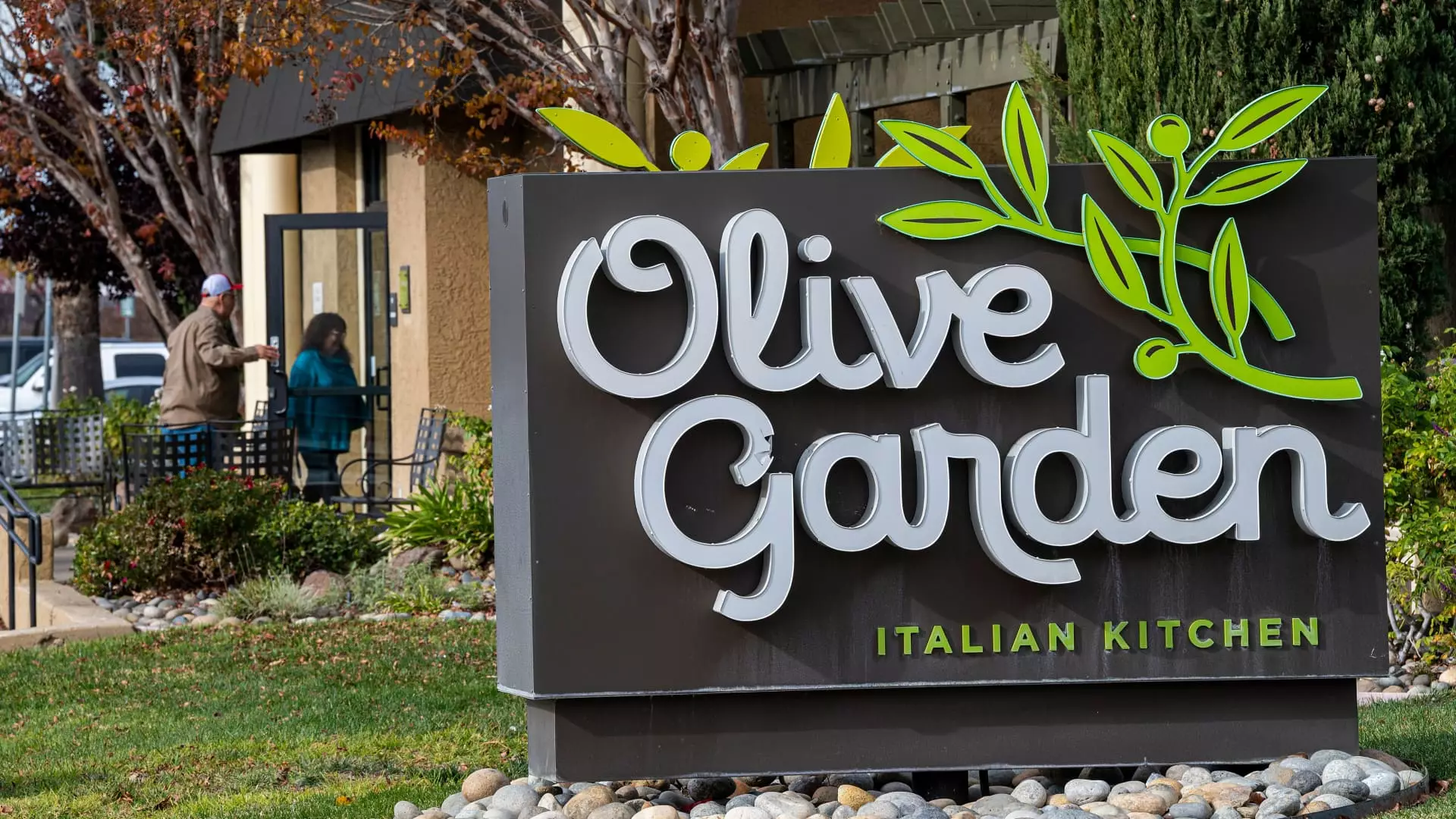In a surprising turn of events for the restaurant industry, Darden Restaurants has managed to outshine Wall Street forecasts, revealing a commendable financial performance that defies the narrative of a widespread consumer pullback. The company reported an adjusted earnings per share (EPS) of $2.98, barely eclipsing the analysts’ anticipated $2.97. Moreover, with revenue hitting $3.27 billion, slightly surpassing the $3.26 billion prediction, Darden proves that the dining segment can thrive even amidst economic downturns. The key takeaway? Darden’s agility in a rapidly evolving consumer landscape is noteworthy and positions them well in a highly competitive environment.
Adaptation in Growth Strategy
The recent performance reports highlight Darden’s strategic shifts, notably disregarding the less favorable trends in casual dining. The company showed a net income of $303.8 million for the fiscal fourth quarter, representing a stubborn yet appealing resilience. Acquiring 103 Chuy’s restaurants and introducing 25 new dining establishments significantly impacted overall revenue, which soared by 10.6% to reach $3.3 billion. This aggressive expansion strategy not only underscores Darden’s commitment to growth but also illustrates their understanding of where consumer interests lie—especially in casual dining.
Darden’s management has explicitly positioned itself as a competitor to fast food and fast casual restaurants, capitalizing on the growing preference for the experience of dining out rather than the convenience of take-away meals. CEO Rick Cardenas’s assertion regarding consumers’ willingness to spend their disposable income on casual dining reflects a strategic narrative that cements investor confidence in Darden’s approach.
The Power of Signature Offers
Part of Darden’s success can undoubtedly be attributed to its flagship brands, Olive Garden and LongHorn Steakhouse, which together represent a significant portion of the company’s revenue. Both brands have outperformed market expectations in terms of same-store sales growth—with Olive Garden hitting a remarkable 6.9%, compared to the anticipated 4.6%. The reinvigorated “Buy One Take One” promotion at Olive Garden has been pivotal, illustrating how impactful strategic marketing initiatives can be in rekindling consumer interest.
On the flip side, the challenges faced by Darden’s fine dining segment (which includes Ruth’s Chris Steak House) signify a more complex customer sentiment regarding luxury dining. The same-store sales decline of 3.3% signals that even high-end dining faces headwinds as consumers reevaluate their spending amidst economic uncertainties. Darden’s ability to convey value in its mid-range offerings, while still recognizing the pressures faced in fine dining, shows a commendable balance in their overall strategy.
Navigating Market Challenges
Despite enjoying robust growth, Darden is proactive about navigating future challenges. The company has identified submerged brands like Bahama Breeze as opportunities for optimization. CEO Cardenas’s commentary regarding “strategic alternatives” for this segment suggests a willingness to pivot where necessary. Whether it involves potential sales or conversions, this attitude towards flexible strategy potentially safeguards Darden against market volatility, allowing it to concentrate resources where they bear the most fruit.
In addition, Darden’s embrace of technology through on-demand delivery partnerships reflects a keen awareness of changing consumer habits. This shift could prove instrumental in enhancing their competitive edge, with Cheddar’s Scratch Kitchen making strides through delivery services, effectively aligning with modern dining trends characterized by convenience and immediacy.
Attracting Shareholder Value
The recent announcement of a $1 billion share repurchase program adds another layer of intrigue to Darden’s financial strategy. Such moves are often indicative of confidence in long-term growth and an intention to return value to shareholders. The company’s stock has responded positively to these announcements, gaining nearly 2% in trading after the news broke. The rise of Darden’s shares, which have seen a 19% increase year-to-date, exemplifies how strategic financial maneuvers inspire market trust.
Darden Restaurants has demonstrated noteworthy resilience and adaptability in a challenging marketplace. By strategically enhancing its offerings, optimizing branding, and navigating consumer preferences, Darden positions itself as a frontrunner in the dining sector. Its blend of innovation and calculated decision-making bodes well for an industry often perceived as being in decline.

